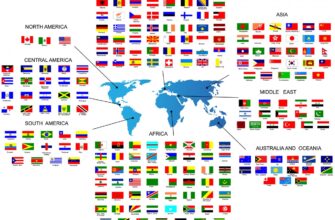 The existence of life forms in the universe on other planets and in other galaxies has been a great concern for the humanity since the origination of the first civilizations.
The existence of life forms in the universe on other planets and in other galaxies has been a great concern for the humanity since the origination of the first civilizations.
The only thought of not being alone in this world evokes in our consciousness hope that there may be interplanetary contacts and opens new horizons of our possibilities.
Meanwhile, with the development of science and space discoveries of solar system, chances of finding alien civilizations are getting close to zero. However, new peculiarities of space are being discovered.
Basic Preconditions for Life Origin
- It is known that origin of life, similar to ours, envisages the following factors: high metallicity of the protostar for the creation of solid rock planet; [adrotate group=”2″]
- Energy of the parent star around, which orbits the potentially inhibited planet, that starts and supports the process of life development;
- Presence of ozone layer on the planet for protection from space radiation;
- The planet must spin around its axis for alternation of day and night;
- Available water as a great solvent in which first chemical-biological reaction will take place.
What is an Inhibited Zone?
The zone of planetary system that has the totality of these factors is called “inhibited zone.” The branch of science that studies the possibility of life origin and development in the universe is called astrobiology.
In the solar system, the inhibited zone starts from the orbit of Venus and ends on the semi-orbit of Mars. High pressure and temperatures on the surface of Venus completely excludes the existence of liquid water. However, the conditions formed in the layer of its cloud cover can definitely be suitable for micro organisms.
As for Mars, airfree atmosphere and uneven pressure can be suitable and support the existence of polar caps – the existence of quite huge water bodies on the planet over a long period of time in the past has been proved.
[adrotate group=”1″]Mars is the first planet on the surface of which the existence of organic substances has been found. Thus, future space expeditions will be quite able to prove the existence of other primitive life forms, unlike human life form, on the neighboring planets.
Carbon Chauvinism
Always remember that life on Earth s based on carbon. Carbon is the fourth most common element in the universe. Nowadays, scientists often talk about the possibility of existence of completely different forms of life, for instance, of basis of arsenic or silicon.
The presumption of the origin of other life forms on the basis of ammonia and methane is quite theoretically proven. The idea of the existence of a life form, similar only to ours, in the universe is called “Carbon Chauvinism.”
Life on Satellites of Giant Planets
In the process of profound research of far-flung parts of our planetary system with artificial probes, scientists discover more and more facts that prove the presence of a celestial body in the inhibited zone is not principal condition for the development of life forms.
Giant planets, like Jupiter, Saturn, Uranus, and Neptune heat the cores of their natural satellites with their powerful impact and gravitation, creating in this way the most comfortable conditions for the creation of the simplest life forms. Cold surfaces of these celestial bodies strongly protect its inner layers from solar radiation and low temperatures.
That is the case with Enceladus, the satellite of Jupiter. The planet has warm saline ocean under its surface. It is also believed that a life form on the basis of methane may exist on Titan, the satellite of Saturn on the surface of which there are vast methane-ethane lakes.
[adrotate group=”3″]On Earth, there are also some living beings that live on the bottoms of oceans with no sunshine, high pressures and critically low temperatures. These creatures live in depth of saline lakes and in water from nuclear reactors. They are called “extremophiles.”
Conclusions
Based on all these facts, we may come to the conclusion that biological life has a wide spectrum of existence possibilities. If want to find singes of alien life forms on other planets and prove the existence of completely different life forms, first, we have to choose the object of research.
Chances to encounter an intelligent civilization, similar to ours, are slim, but probable. Anyway, future space explorations will definitely open new facts about life forms in the universe.
The question of what type of life form will it be, how to differentiate it from inanimate matter, and whether it is possible for us, carbonic organisms, to differentiate them at all is the matter of time and comprehensive analysis. Also read about alternative point of view on the history of humanity, and about the most famous and weird mistakes of present-day scientists.








